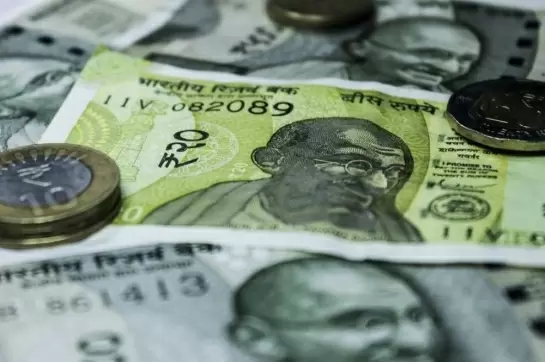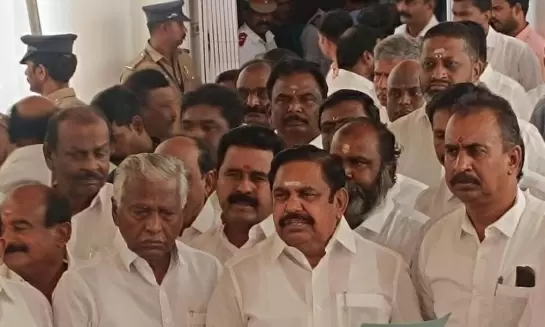Cry of an anguished working woman
22-December-2012
The horrific rape of a 23-year-old woman by a gang of six men, who stripped, assaulted and robbed her and then dumped her on the roadside along with her male friend has outraged the nation. But for working women in the Indian capital, it is an everyday scary situation that could happen anytime, anywhere and to anyone of them.
Ask any woman in Delhi if she has ever faced sexual harassment, molestation or what is euphemistically called eve-teasing on the city roads - and the answer will always be a huge "Yes".
And if you ask a man why men are turning into "big bad wolves" the answer will be trite: "Women wear provocative dresses" or even: "Men can't stop themselves."
It is hard to pin down what is wrong with vast sections of the menfolk of this city of over 16 million.
Some blame it on the geographic location of this historic city, which borders Haryana, Punjab and Uttar Pradesh, where men have always tended to dominate over women (that is why the violent reaction to a young working woman who sought to hit back at them), while some others pin it on the floating migratory population where a number of workers live far away from their families.
Others say the rising crimes are due to growing inequality in society - some ultra-rich and some very poor - adding to the frustration level among segments of people who feel themselves deprived.
But the answer is not that simple.
One thing, however, is for sure: that woman in this city are scared to venture out after 8 p.m. even if they are escorted by a man or driving their own vehicle. In fact, a woman venturing out at that time is very often viewed as a sex worker or simply, "available" or "asking for trouble".
Anyone who goes to Mumbai can see the stark difference between the two cities - one a financial capital and the other the country's capital and the government's seat of power.
The first time I had gone to Mumbai I was surprised the way the girls freely walked on the main streets wearing short skirts. Frankly, I was aghast to see them out on the road past midnight dressed like this. But I soon came to envy that girls in Mumbai enjoy so much of freedom to move around as they want to. It felt good.
I can never forget my aunt's words spoken many years ago.
"Men are dogs," she would say dramatically whenever I would come home late. And I would nod sedately.
As I grew up, I learned what she actually meant.
In buses or on the busy streets in Delhi, it is common to see men touching women inappropriately, trying to lean on them or just staring at them.
I too had my share. Till one day, I saw a man running in panic after he was beaten up black and blue by a woman with her pointed heel in a crowded bus. That day, I decided I had enough and decided to protest the continuing sexual assault.
In fact, so much so that my parents stopped going out with me because I would create a scene in the bus.
I can never forget an episode where I could have been kidnapped and maybe met the same fate that the 23-year-old physiotherapist met.
It was quite late and I had an assignment at India Habitat Center. As the road during those days used to be in darkness, I thought I would walk to Khan Market, the capital's hip spot for shopping, bustling with people. But as I was walking, I could see a Maruti van slowing down and then taking a U-turn towards me.
The road was completely deserted and it was 9 pm.
As I was aware that MPs houses have armed guards, I immediately tried to take shelter there and armed myself to shout my lungs out for help.
The driver of the car was audacious enough to jump out and, before walking towards me, he flung the car door open so that he could bundle me inside. It was sheer coincidence that my husband reached just in time and rescued me from a fate worse than death. But the memory never fails to bring goosebumps on me.
But just because some predators are out on the streets didn't stop me from working.
What perhaps helped me were the words of former Indian Police Service officer Kiran Bedi.
Some years back, I had asked her while writing a story on crime against women on what women can do to protect themselves and not leave it to policemen or to another man.
She had a very simple but very reasonable answer - a woman walking alone on the road should walk against the traffic so that no one can pull her inside a vehicle, and second, a woman should always trust her intuition.
I totally agree with her and it has been my motto ever since.
As I was telling my mother-in-law about the gruesome attack on the young physiotherapist she couldn't stop herself recalling a similar story but with a happy ending.
She was traveling alone in a public transport bus from Delhi to Jammu some 30 years ago. It was very late when she finally reached her destination and in the darkness forgot the directions. But both the bus driver and conductor helped her and ensured that she reached home safe.
"There are men, and there are men. Some are good and some are evil. It is how they are brought up as young children that shapes their personalities," she told me recalling the incident. For her, the two men who helped her reach home were saintly.
But are such men are a rarity these days?
Whenever such incidents happen, a shrill cry is made for more patrolling and more policemen on roads. But ask any woman whether they feel safe with a cop, the answer again will be no.
If you go to them for help they will either ask you such questions that will make you feel embarrassed or make you nervous.
Many women these days carry spray cans. But it won't help much if a gang of men surrounds you.
My motto has always been - don't trust anyone. If I am going alone late at night in the car, I try to huddle myself and try not to make any eye contact with other vehicle owners - especially those sitting in call center cabs.
I asked a male colleague how a woman could feel safe in such a scary situation with a high crime rate and low conviction rate.
His answer was: Carry stun gun (a hand held electric shock weapon) used the world over. It incapacitates a person by administering electric shock aimed at disrupting muscle functions. In India only policemen and the paramilitary use it.
Women too should be given these stun guns, maybe issued to them with a license.
It is time that women too arm themselves - literally. It is also time that men who act like pack of wolves be taught the exemplary lessons of a lifetime that acts as deterrent to such gender supremacist behaviour.
(Kavita Bajeli-Datt is a senior journalist. The views expressed are personal. She can be contacted at [email protected])
New Kerala Guv Strikes Cordial Tone, Hosts CM Vijayan And FM Sitharaman In Delhi
Digital Payments Surge in India: 18,120 Crore Transactions in FY24-25
Weather Dept Predicts Heavy Rains In Several TN Districts
Chitra Subramaniam’s Book Boforsgate Exposes Arms Trade, Corruption, and Political Intrigue
Israeli Tourist Gang-Rape Case: Third Accused Nabbed in Chennai









